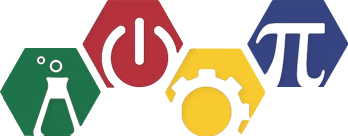Blending chemical and mathematical knowledge as solve problems in chemical kinetics Answering recent calls for discipline-based education research and interdisciplinary work
This study seeks to investigate how students integrate chemistry and mathematics during problem solving in chemical kinetics, a context that has little attention in the literature. This work investigates the following research question: In what ways do chemistry and mathematics knowledge interact as students engage in chemical kinetics problem solving?Personal constructs, a blend of personal and social constructivism, served as the theoretical framework for this study, which involved semi-structured interviews using a think-aloud protocol with 36 general chemistry students, 5 upper-level physical chemistry students, and 3 chemical engineering students. Audio and written data were collected using a Live scribe pen, which were then combined to create interpreted narratives for each student. Blended processing, a theory from cognitive science that characterizes human knowledge integration, was used as a methodological framework to guide the analysis. Open coding revealed themes relating to common topics that were discussed when blending occurred; variation in the depth of blending was also characterized. Results provide implications for supporting student problem solving and the modeling of chemical processes.

